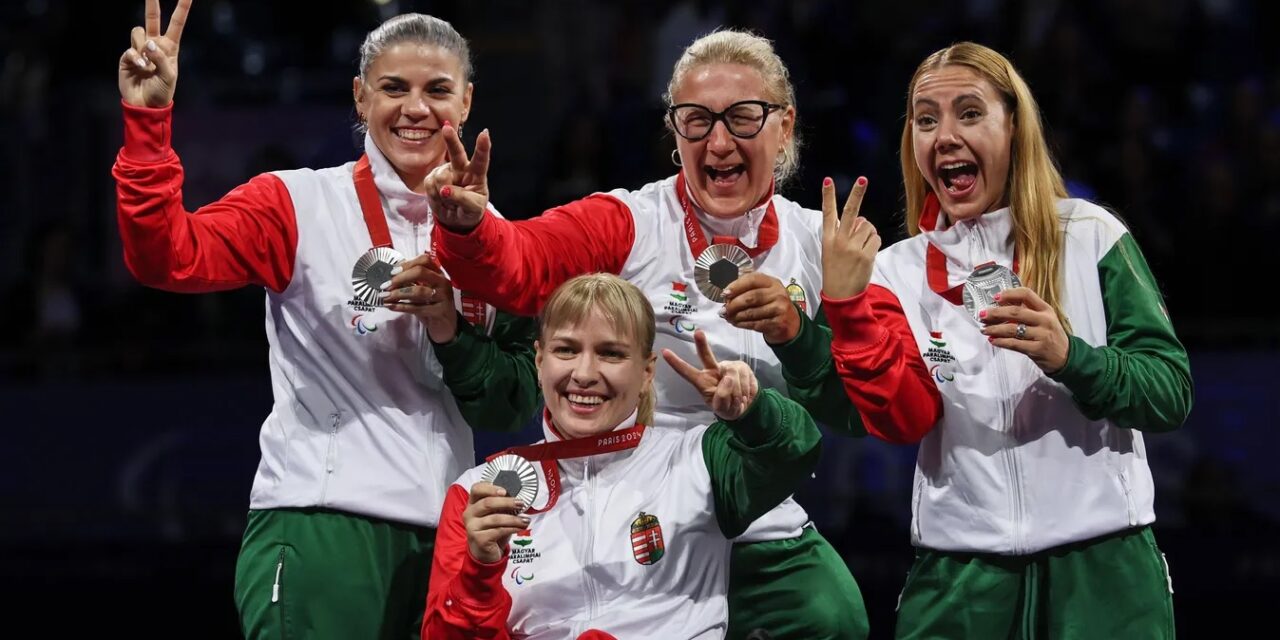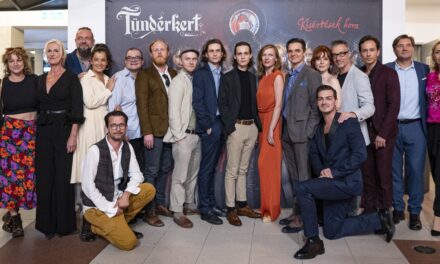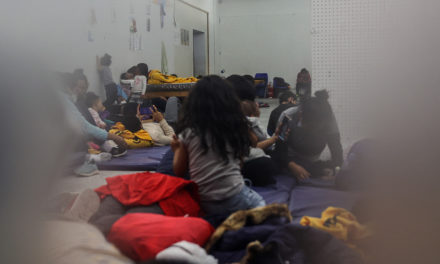The Hungarian women's wheelchair dagger team made up of Éva Hajmási, Boglárka Madarászné Mező, Zsuzsanna Krajnyák and Amarilla Veres finished in second place at the Paris Paralympics on Thursday.
This year's European champion team started among the eight in the field of ten teams and defeated the French with a superior score of 45-19, and then confidently beat Hong Kong in the semi-finals with a score of 45-29. In the evening finale, the favorite met the Chinese, who featured gold medalist Cou Hsü-feng and runner-up Ku Haj-jan in category A, and silver medalist Hsiao Zsung in category B.
The Hungarians started again with Éva Hajmási, Boglárka Madarászné Mező, and Zsuzsanna Krajnyák.
The teams must include at least one category B fencer, i.e. with a more serious injury from the point of view of fencing, this was Mező Boglárka for the Hungarians.
The Asians started better, leading 10-3 after two aces, Hajmási and Krajnyák giving a total of three points. It was no surprise that Mezó failed to beat Cout, but then Hajmási significantly improved his position against the Chinese "B", Hsiao. While "Ria-ria-Hungária" rang out from time to time in the stands of the Grand Palais, the fencer of Törekvés SE took turns, did not let his rival "slave" until 20, instead winning the ace with 17-4 gave his team an advantage (20-19).
Mező achieved one hit against Ku with a feat, then at 21-25, the fourth member of the Hungarian team, Veres Amarilla, the individual dueling champion in Tokyo, also played a role for the first time during the day. He fought well against Cou, but lost 5-2, so before the last round, the Hungarian team had to overcome a seven-point deficit (23-30).
Hsiao beat Mezó 5-3 in the two B-category aces, followed by Hajmási, who had a much harder time against Cou, but once again fought brilliantly. He won 7-5, making the score 33-40, and the finishing man, Krajnyák, would have needed a huge feat against Ku to turn it around.
It didn't work out, in the end the Chinese won 45-34, but the Hungarian national team deserves all the praise, because they performed excellently all day and moved up one place compared to their result in Tokyo.
"I felt that Chinese girl and when I feel someone, I give a lot of tussle," recalled Hajmási in the mixed zone.
"We already knew at home what kind of division we would have and we were very happy to be the first to compete with the hosts here in Paris. All three of us fought very unitedly and beautifully, we got the most out of that match"
he added.
Speaking in the last match, Veres - who is more strong in dueling - said that the goal of his setup was to surprise the Chinese.
Mező revealed that he rested his hand injury the day before and is very happy that he could be a part of the recent success. As he put it, their secret is to never give up.
Participating for the seventh time, Krajnyák won the 13th Paralympic medal of his career.
"No one has said this before," he declared.
"For the time being, I find it difficult to find the words, the feelings are still swirling inside me. The best moment of the day was when we made it to the final. We failed in Tokyo, and then we discussed that we would like to compete in the final in Paris. We prepared a lot for this, all four of us fought above our strength today"
he declared.
The dagger team won the eighth medal, the second silver, of the Hungarian delegation in Paris, the total currently stands at three gold, two silver, and three bronze.
The Paralympics last until Sunday.
Result:
women's dagger, team, final:
China-HUNGARY 45-34
MTI
Featured image: Paris, September 4, 2024 Amarilla Veres, Boglárka Mező, Zsuzsanna Krajnyák and Éva Hajmási (bj), members of the silver-medal Hungarian women's wheelchair dagger team at the Paris 2024 Summer Paralympic Games, at the announcement of the results of the women's fencing team's wheelchair fencing A category at the Grand In the Palais exhibition hall on September 5, 2024. MTI/Koszticsák Solid













